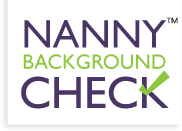10 Things About Their Histories Nannies Should Tell Upfront
April 4, 2012 | in Background Check
 Even the most capable nannies may have things in their past that they’d rather leave hidden, but it’s very important that you be forthcoming and honest with certain information. Tackling sticky issues head-on instead of waiting for a background check to disclose them is the best course of action to prevent the appearance of dishonesty and the loss of a post.
Even the most capable nannies may have things in their past that they’d rather leave hidden, but it’s very important that you be forthcoming and honest with certain information. Tackling sticky issues head-on instead of waiting for a background check to disclose them is the best course of action to prevent the appearance of dishonesty and the loss of a post.
- Criminal Record – Most employers are likely to be forgiving of a youthful mistake that is admitted openly; discovering a criminal record during the final stages of the hiring process is, however, likely to make them angry and feel distrustful. Any blemishes on your criminal record should be addressed before the background check begins.
- Moving Violations – A problematic driving record, such as one with dozens of speeding tickets or a reckless driving charge, could be grounds for immediate dismissal if it’s discovered after you’ve been hired.
- Substance Abuse Problems – If substance abuse problems in your past are documented, it’s essential that you disclose this information upfront and show proof that you’re fully rehabilitated.
- Medical Conditions That Require Allowances – Employers, even those on a private level, are not allowed to discriminate against candidates with medical problems or disabilities. However, it is very important that you let a potential employer know about any health issues that you may have in order to be sure that they are able to provide the accommodation you require.
- Problems With Previous Employers – One poor reference can do damage to a nanny’s reputation, but a glaring period of unemployment typically requires explanation; as a result, leaving the name and contact information of a previous employer can seem like a tricky situation. It’s best to leave your work history intact, and explain to your potential employer that there was a problem at the post.
- Mental Health Issues – While mental health problems are protected under discrimination laws, it’s still important to disclose any illnesses that you have. Even if your symptoms are well controlled with medication, it’s in the best interest of you and your employers to be fully aware of any warning signs.
- Citizenship Status – Though it’s illegal to work “under the table” for cash, it is a relatively common practice in the nanny world. While we certainly don’t advise this method of compensation, it’s ultimately between you and your employer. However, if one of the reasons that you prefer to be paid “off the books” is that you aren’t legally eligible for employment due to citizenship status, it is absolutely essential that you disclose that information.
- Impending Change in Familial Status – If you’ve recently discovered that you’re pregnant, are planning to be married soon or foresee other changes in your family status on the immediate horizon, it’s best to let your prospective employer upfront in order to give them sufficient notice and time to prepare.
- Credit Problems – While some states prohibit the use of financial information for employment purposes, others do not. There’s also a school of thought that advises employers not to hire candidates with poor credit, as it shows a lack of responsibility. If there are blemishes on your credit report and you live in a state that allows that information to be considered, it’s best to be forthcoming.
- Personal Crises – We all have problems in our personal lives from time to time; if you’re struggling with an extended family illness or other personal crisis, it’s important to let a prospective employer know so that they can make plans for backup care should you need to take time off.
Honesty really is the best policy, and these are only a few of the situation that might require disclosure. It’s important to use your own best judgment regarding other aspects of your history when deciding what is appropriate and necessary to share during an interview.
← 10 Physical Signs a Child is Lying to You | 10 Interesting Facts About the History of Background Checks →Run A Background Check Now
Fast, reliable & secure background checks are just a few clicks away.
Choose a plan & click to start your check at eNannySource.com

Recent Articles
- How to Reject a Nanny Applicant Gracefully
- How to Monitor The Quality of Care Your Children Receive
- How to Check Up on Your Nanny When You Don’t Have Nanny Cams
- 10 Unwritten Playground Rules All Parents Should Follow
- 12 Tips for Keeping the Backyard Safe This Spring
- 10 Things Moms do That Could Get Them in Trouble with the Law
- How to Snoop on Your Kid While He’s Online
- 10 Reasons Parents Should Not Have Guns in the House
- 10 of the Most Important Things to Include in Your Nanny Contract
- 10 Signs a Nanny Candidate Might Be the Wrong Choice
Article Archives
- September 2013
- August 2013
- June 2013
- April 2013
- March 2013
- February 2013
- January 2013
- December 2012
- November 2012
- October 2012
- September 2012
- August 2012
- July 2012
- June 2012
- May 2012
- April 2012
- March 2012
- February 2012
- January 2012
- December 2011
- November 2011
- October 2011
- September 2011
- August 2011
- May 2011

